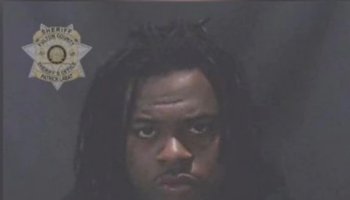Jury: Death sentence for Cassidy’s killer
By Joseph A. Slobodzian
INQUIRER STAFF WRITER
A death sentence means the jury was unanimous in its decision.
Before beginning their work, the eight women and four men on the jury heard an hour of contrasting closing arguments from Assistant District Attorney Edward Cameron and defense attorney Bernard L. Siegel.
Cameron told the jury that Pennsylvania’s death penalty statute virtually compels them to decide that Lewis, 23, be executed for Cassidy’s killing during an armed robbery at a North Philadelphia doughnut shop.
Cameron discounted the defense’s reasons – Lewis’ age and other family and background factors – for the admitted killer to spend life in prison without chance of parole.
On the other side, Cameron argued, there were four legal factors warranting death by lethal injection: the murder of a police officer, a murder during another crime, the five armed robberies Lewis admitted committing before Oct. 31, 2007, and endangering customers and bystanders by shooting and killing Cassidy.
With the Cassidy family, Police Commissioner Charles H. Ramsey and an array of department brass, officers and prosecutors behind him, Cameron quoted Robert Lewis Stevenson.
“There comes a point in time when every man must sit down to a meal of his own making,” Cameron said. “John Lewis created this meal.”
Referring to the police in the audience, Cameron told the jury: “We have to look at every one of them and tell them, ‘We have your back.'”
Cameron’s emotional and at times angry closing was counterbalanced by Siegel’s quiet, measured tone in urging the jury to sentence Lewis to life.
Siegel called Cameron’s closing a call for vengeance – “emotional and extremely cynical” – and told the jury that the law “makes nothing automatic about the death penalty.”
Siegel argued that the jury should understand that by pleading guilty to Cassidy’s murder and the six armed robberies – the jury only had to decide if the killing was first- or second-degree murder – Lewis had thrown himself at their mercy.
Except by committing suicide or begging for execution, Siegel continued, “What else could he do?”
“Is this person here too evil t
o live? Is he the worst of the worst?” Siegel asked as Lewis sat slumped, head down, a few feet away.
“He is not asking to be applau
ded,” Siegel added. “He deserves to be sent away, banished from our sight, never to be seen again except in a box.”
The jury must vote unanimous
ly for the death penalty; if it cannot reach a decision, Lewis is automatically sentenced to life without parole.
On Friday, the jury heard pena
lty-phase testimony for Lewis, 23, who confessed to the Oct. 31, 2007 shooting of Cassidy, 54, a 25-year veteran of the police department.
On one side were Cassidy’s widow Judy, his two daughters and former police partner, who testified emotionally about how his death has affected the
ir lives.
On the other were Lewis’ mother, Lynn Dyches, a Philadelphia prisons correctional officer, his grandmother and sister, who pleaded for his life. All three said they do not know why Lewis embarked on a series of six armed robberies in the fall of 2007.
The final robbery, of a Dunkin’ Donuts at 6620 N. Broad St. in West Oak Lane, was interrupted by Cassidy as he made a routine patrol stop. Lewis tur
ned and shot Cassidy once in the forehead.
On Thursday the jury found Lewis guilty of first-degree murder, which resulted in the need for the penalty phase hearing.















